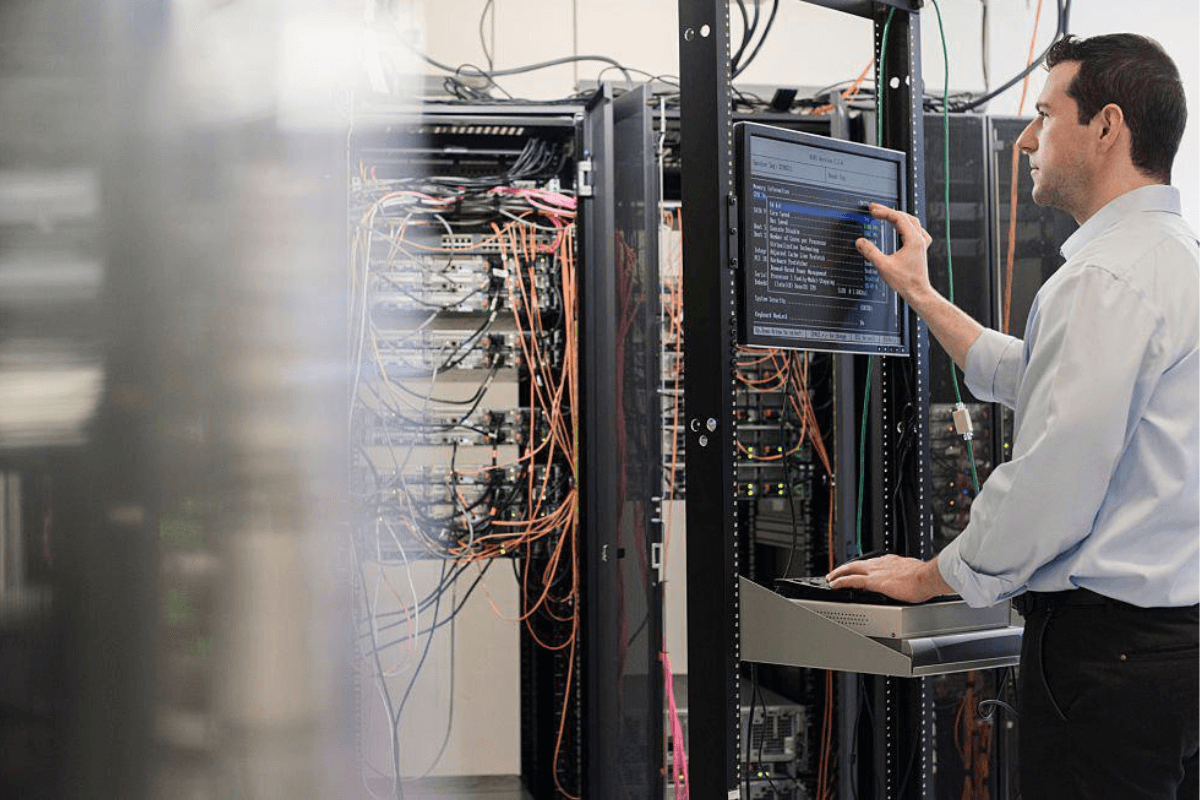Micro Data Centers Play a Significant Role in Enhancing the Efficiency Aspect of a Hospital
Thousands of individuals suffer adverse effects yearly because of incomplete or inaccurate medical records. So check out how the micro Data Center addresses the efficiency dilemma of hospitals.
The critical nature of healthcare facilities in hospitals needs stakeholders to work on businesses around the philosophy of efficient service. The capacity to manage the information stream generated in the regular procedure is increasingly critical to the reputation and professionalism of the hospital sector.
Thousands of individuals suffer adverse effects yearly because of incomplete or inaccurate medical records that may affect treatment testing and accurate diagnosis. Improved and integrated solutions suggest micro data centers may help significantly limit the number, enabling access to the accurate medical record, helping to manage medical papers, and facilitating medical decisions.increasing challenges for the health sector
The modern pandemic has increased the complexity of hospital efficiencies. More and more hospitals are experiencing a backlog that is causing a delay in patient treatment. On the other hand, rural healthcare institutions experience the problem of providing patients with access to skilled and specialized medical professionals to get on-time therapy in a remote setting.
Globally, most healthcare institutions are challenged with the problem of improved efficiency as manual work has its errors. Moreover, the remote and onsite systems have their problems. Various healthcare facilities do not have the appropriate technology to support the plan.
Electronic and reporting medical records are affected very badly. With no or little access to patient history, various hospitals face difficulty-sharing information with other healthcare institutes.
The problem of sustainability
Efficiency impacts sustainability to an extent. Hospitals consume a large amount of energy every year. Most healthcare institutions use energy for lighting, ventilation, cooling, and heating hot water. Energy consumption is a significant part of the hospital sector.
As a result, technology is like electronic imaging tools, and digital recordkeeping adds to the load. The remote facility operates at full energy utilization, even when the office is closed. They must work on temperature settings, equipment, lights, running, etc.
However, these high-cost expenses can be avoided. New technologies like Hospital software will help healthcare facilities and their staff members get easy and quick access to screen vegetables to monitor and control energy consumption in the different rooms, whether unoccupied or occupied. It's because these rooms must be managed distinctly from a comfortable perspective.
Sensors inside the rooms gather abundant energy consumed for other things required. As a result, it adds to not only the safety but also the comfort of the people. Building analytics software under Alterum Technologies helps convert the information into accountable intelligence that improves the facility's energy efficiency and boosts patient satisfaction.
How does the micro Data Center address the efficiency dilemma of hospitals?
You have good news. Hospitals that are thinking of improving sustainability and efficiency have a red light. Innovation in computing technology is improving connectivity while high-efficiency cooling and power are helping hospitals facilitate the following:
- Reduce costs
- Improve operational sustainability and efficiency
- Enable a better treatment experience
- Improved profitability
Cooling and power infrastructure and IT systems play a vital role in helping healthcare institutions drive efficiency in their operations. Most healthcare institutions have medium or small data centers within their premises. These primarily use high-level artificial intelligence to keep a record of their information.
With the increased availability of the Internet, more sensors and devices are connected to the hospital sector. A vast amount of data is flowing forth and back between the department and within healthcare facilities.
With the increase in information comes the issue of latency. As a result, hospitals must upgrade their recordkeeping practices so that no patient record goes missing. New medical applications and devices need to be introduced so that hospital facilities can continue their operations without any hurdles.
Medical tool providers often collaborate with other diagnostic centers that help the departmental staff and doctors achieve accurate and fast patient results. To accommodate the changes, various healthcare institutions are starting to deploy data centers to enable efficiency in recordkeeping practices. By accessing the cloud-based application, it can be done to revolutionize this sector.
Discover local micro data centers
It is the responsibility of healthcare institutions to look for micro data centers to learn more about their services. Remember that micro data centers are pretested, integrated, and pre-assembled solutions for configuring data. These data centers are ready to provide you with networking and storage devices that work best for the hospital industry. Along with this, they can provide you with 24/7 monitoring by using several tools that are easy to install and manage.
Software-based data center infrastructure is the need of the hour. The core element of these systems is the proper management of records using HITECH technology. Additional security devices, like racks and server rooms with security cameras, may be installed for the correct configuration. Healthcare institutions must rely upon micro data centers for better networking sources, server support, and storage. It will completely change the way they work.

Subscribe & get all related Blog notification.





Post your comment